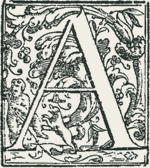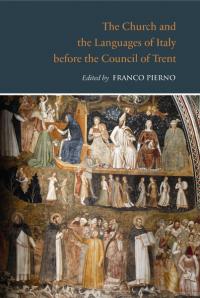The Church and the Languages of Italy before the Council of Trent
Autore:
Autori vari - a cura di Franco Pierno
In recent decades, historians of language have directed increasing attention to the relationship between the Italian language and the world of religion, transforming what was once a sidebar in university textbooks into a privileged chapter. The importance of the topic is manifest: since its beginnings, religion has been intertwined with matters of language, for the Church has continuously educated speakers and readers, especially through preaching, the translation of sacred texts, and the diffusion of devotional works in the vernacular.
From a historical-linguistic point of view, and as Giovanni Pozzi reminds us, the vital communicative coherence created following the Council of Trent constitutes a fundamental step toward the formation of standard Italian. Through the restructuring of hierarchies and the standardization of clerical training, Tridentine reorganization in fact made the Church the primary vehicle for the vernacular by offering catechisms, by promoting linguistic pedagogies, and by bringing about an increase in popular preaching. The analysis of the relationship between language and religion in Italy in the pre-Tridentine period, however, suggests a more complex view.
In the absence of true hierarchical and linguistic centralization, religious communication from the period appears extremely variegated, without apparent common denominators. A few recent studies have attempted to provide a clearer picture of the vast array of texts and languages at the service of the medieval Church. They have laid the foundation for a better understanding of what we may call, paraphrasing Fernand Braudel, “diverse forms of the duration”, structures and behaviours characteristic of historical continuity.
In this volume, the most recognized specialists in the field and junior scholars have collectively produced a contribution that both deepens and ameliorates these initial attempts to rethink these crucial relationships between religion and language. While highlighting, as others studies have, the diversities of geolinguistics, of literary genres, and of registers that the ecclesiastical word could assume in medieval and early modern Italy, the essays in this volume additionally shed light on those constants and variables that, considered together, provide a systematic re-visioning of pre-Tridentine religious language.
Editor
Franco Pierno is Associate Professor in Italian Linguistics and an associate of Trinity College in the University of Toronto. His main field of research is the relation between languages of Italy and the Church. He is the author of Postille spiritual et moral (Venise, 1517), an edition and linguistic analysis of the first Italian biblical commentary (2008), and the editor of Bernardino Ochino's Apologi (2013). In 2010, he was awarded a research grant by the Social Science and Humanities Research Council of Canada to study texts in the Italian language, published in Geneva during the years of Jean Calvin’s religious and political authority.
Contributors
Francesco Bruni • Vittorio Coletti • Carla Damnotti • Dorothea Kullmann • Rita Librandi • Nicoletta Maraschio • Carla Marcato • Franco Pierno • Giuseppe Polimeni • Marco Prina • Wanda Santini • Raymund Wilhelm • Miriam Wittum • Olga Zorzi Pugliese




